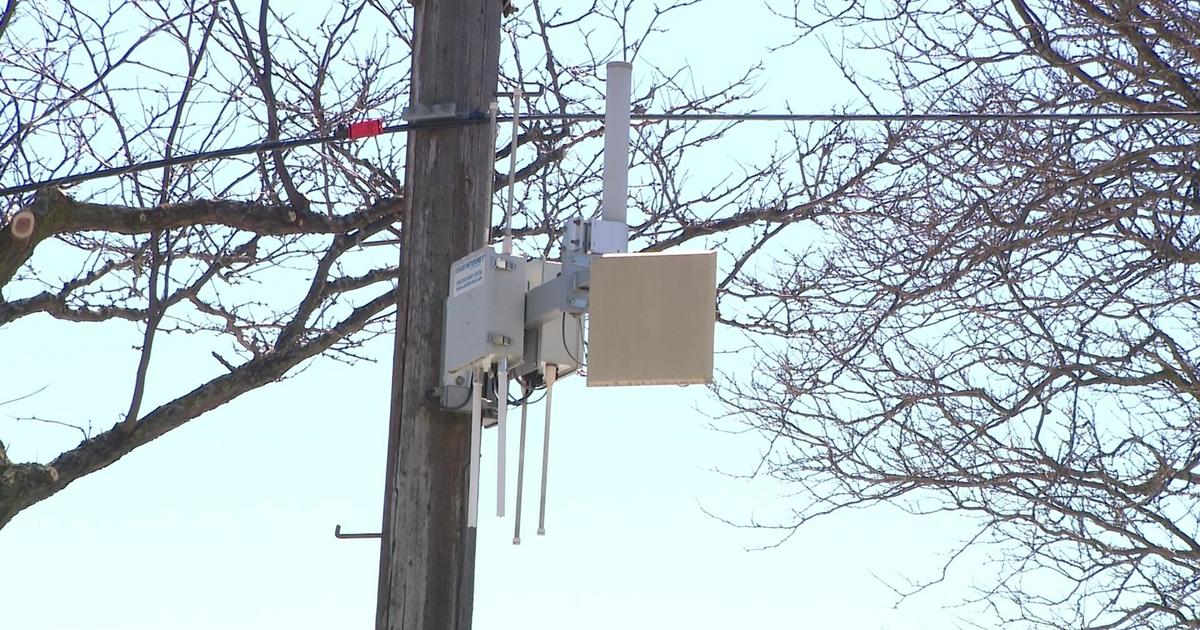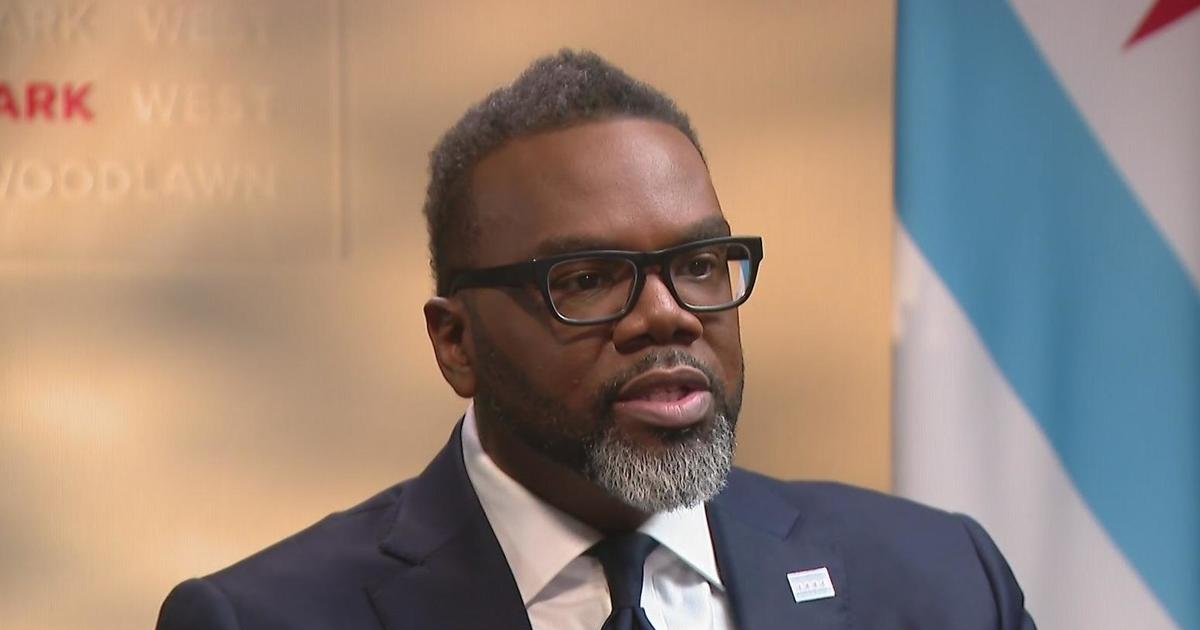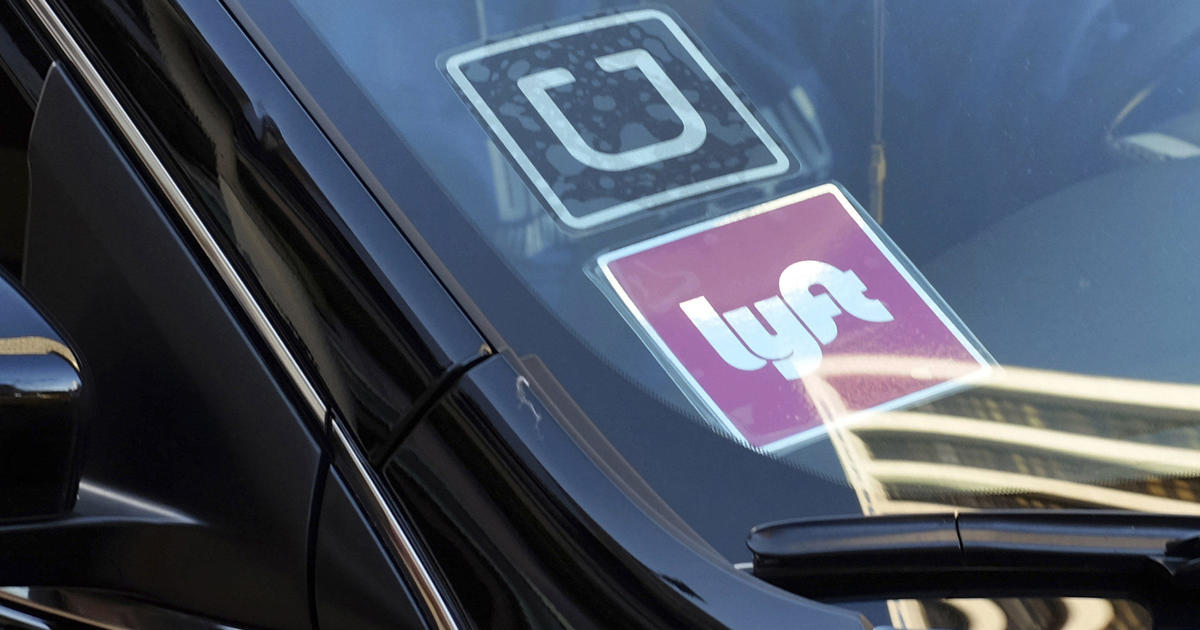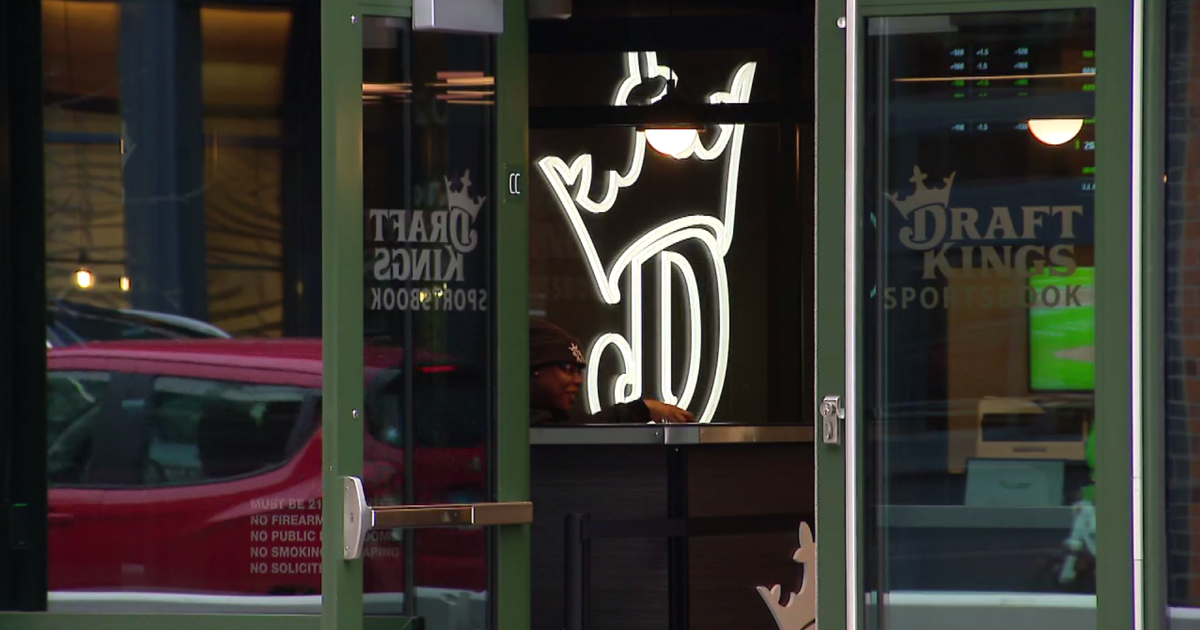Mayor Lori Lightfoot Says City Has $838 Million Budget Shortfall, Warns Of Consequences If Casino, Pension Reform Don't Go Through
CHICAGO (CBS) -- In her State of the City address on Thursday evening, Mayor Lori Lightfoot warned that the City of Chicago is dealing with a budget shortfall of $838 million.
Lightfoot focused on long-term fiscal solutions and structural reforms as she talked about her plans to getting Chicago's financial house of cards in order. But she warned that if Chicago does obtain certain assets such as an agreement for a casino, and structural changes to the city's pensions, the city will be stuck with "very hard and limited options."
FULL TEXT: Mayor Lightfoot's State of the City Address
Lightfoot emphasized that the State of the City address is not a budget address – a budget that details every expense and source of revenue will come in October. The purpose, she explained, is to highlight the budget gap, efforts to fill it up to this point, and future efforts to do so.
Mayor Lightfoot said she came into office on May 20 with a huge budget deficit and no roadmap for how to fix it.
"If we followed the old playbook, we could have tried to muscle through another historically large property tax increase, relied upon a massive borrowing scheme, shortchanged pensions, or some measure of all of the above," Lightfoot said. "I fundamentally rejected these approaches."
Instead, in the just over 100 days since she took office, Lightfoot said she has focused on a growth strategy that includes all Chicagoans in every neighborhood. She touted reforms such as ending aldermanic prerogative, placing restrictions on outside employment for city workers, and expanding oversight for elected officials.
Further, Lightfoot touted ways she has professionalized aspects of city government that were not overseen properly and were ripe for abuse – such as the $100 million per year workers' compensation program that had been under the sole control of Ald. Ed Burke (14th). Burke, who served for decades as City Council Finance Committee chairman, is now under federal indictment.
"An independent audit of that program found well over 600 claims were open for over a decade without any resolution, even though the City had paid almost $300 million toward these open claims, and the program was ripe for fraud, waste, and abuse," Lightfoot said. "Just by professionalizing that program we expect to reap significant savings."
Lightfoot also said efforts to replace high-cost debt will save $100 million alone, and $1.4 billion in short-term borrowing has been eliminated – for a savings of $22 million in interest and fees. The city has also cracked down on absenteeism and medical roll abuse among city workers, Lightfoot said.
The mayor went on to discuss long-term fixes – focusing on a growth strategy that focuses on the city's neighborhoods that will expand the city's population and tax base, and that will also be supportive of immigrant and refugee communities.
"(O)ur pathway to fiscal health has to run through households and neighborhoods like Roseland, and Rogers Park, Austin and Englewood, from the southeast and southwest, and neighborhoods like Pullman and Park Manor," she said.
Lightfoot also emphasized reforms that she says have benefited struggling Chicagoans – including Fair Workweek legislation that gave workers predictable schedules, an end to driver's license suspensions for non-moving violations, a reduction in city sticker penalties, and an end to water shutoffs for residents facing hard times. She also said a $15 minimum wage in Chicago would be coming by 2021.
But despite the optimism, Lightfoot was quick to emphasize that all is not roses and sunshine.
"When I started as Mayor on May 20th, we walked into a projected deficit for next year of $1 billion, yes, that's billion, with a B. As a result of all of the efforts we have made to date, and changes in our forecasting, that number has decreased by almost $200 million. But that still means that the budget gap for 2020 is $838 million," Lightfoot said. "If $838 million sounds big, it's because it is."
It is, in fact, the largest budget gap in recent Chicago history – factoring in everything from increased pension and labor costs to increases in servicing debt and anticipated lawsuits.
Mayor Lightfoot did not dwell on the possibility of property tax increases in her speech. But speaking to CBS 2's Irika Sargent this past Monday, the mayor said the idea cannot be taken off the table altogether.
"(G)oing to property taxes is something that I want to try to avoid, but I can't in good conscience at this point take that off the table," the mayor said Monday.
Lightfoot was broader and less specific about the possibilities for dealing with the deficit in her speech saying, "As your mayor, I cannot in good faith promise you that I will take any option off the table to tackle this crisis, whether it's through budget reductions or by raising revenue."
Plans are already afoot to alleviate the situation – including a graduated real estate transfer tax that will ease the burden on homeowners whose houses sell under $500,000 while charging those with more expensive homes their "fair share," and a "robust and healthy" marijuana industry once recreational marijuana becomes legal in Illinois on Jan. 1, 2020.
Lightfoot also emphasized the plans for a Chicago casino, which she said will create a dedicated revenue stream to pay for city pension costs while also creating thousands of jobs and benefiting state finances.
But earlier this month, a feasibility study said the state statute that authorized casino gambling in Chicago would make it impossible for a casino owner to be successful. Under the law, a Chicago casino operator would have to pay a $250,000 application fee upfront, a $15 million "reconciliation" fee when the license is issued and up to $120 million in gambling position fees.
Lightfoot said the city and state need to get the tax structure for the casino right. And she warned that the consequences will not be pleasant if Chicago does not secure a casino.
"We will be forced to make painful choices on finding other revenue sources – and we all know what those are, the sources we wish to desperately avoid," Lightfoot said.
Lightfoot also warned that the city's pension obligations remain steep – amounting to an increase of $400 million coming in 2021.
"In other words, no matter what we do for this coming budget, Chicago will be on the hook for over half a billion in new pension obligations over the next three years," she said.
Lightfoot warned that other smaller Illinois municipalities have struggled with rising pension costs, and like Chicago have sold their assets while failing to make a dent. The other towns, Lightfoot said, have also been downgraded by rating agencies because of their pension burdens – increasing the cost of borrowing.
"Just like Chicago has historically done, they've turned to raising property taxes," Lightfoot warned. "I want to avoid that measure as much as possible, but if we don't get the structural changes that our pensions need, we will be presented with very hard and limited options."
Lightfoot said she is working with Gov. J.B. Pritzker, legislative leaders, and other stakeholders so that all Illinois policymakers are partners in reform. She also asked for input from the public – and noted that four budget town halls will be coming up around the city.
"Yes, some of our solutions will be hard. Yes, they may involve putting ourselves at risk. And if it means that I sacrifice myself politically, so be it in pursuit of the right thing," the mayor said. "We don't have a moment to lose."



